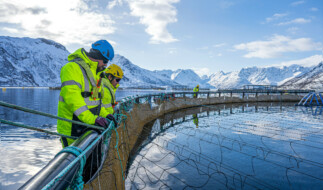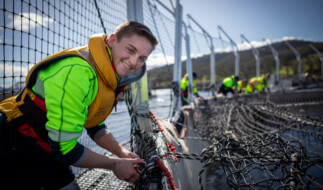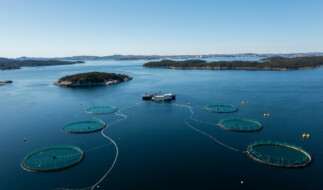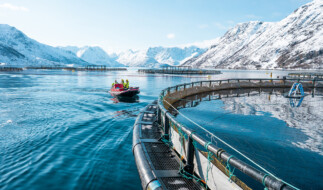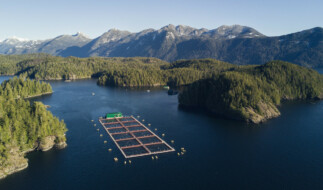Two member CEOs Gerardo Balbontin, Blumar and Regin Jacobsen, Bakkafrost discuss the 7th Annual GSI Sustainability Report
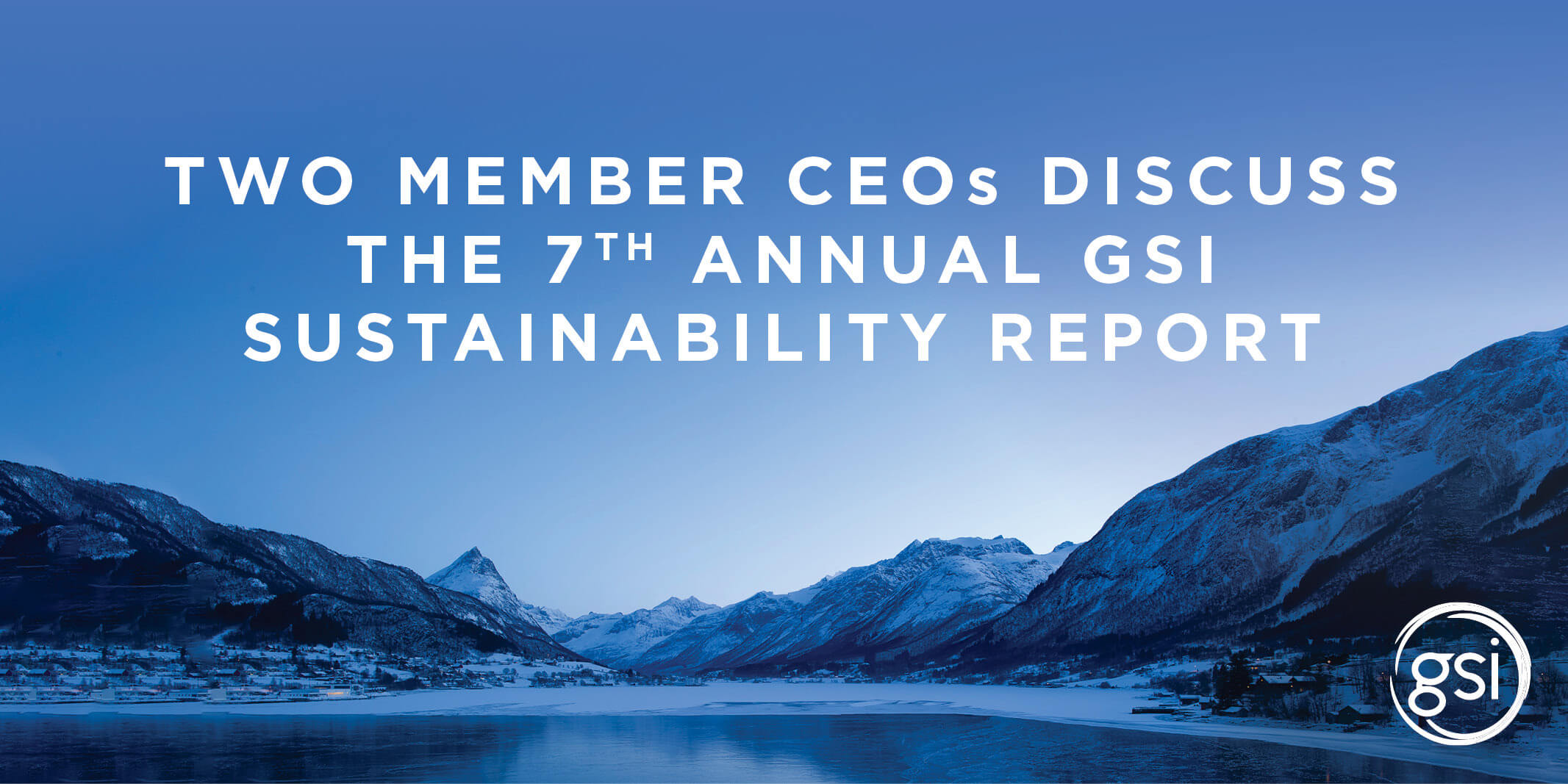
Q. Congratulations on the launch of the 7th GSI Sustainability Report. It’s quite an accomplishment to see the initiative going from strength to strength and continuing to uphold its sustainability commitments. Now when most individual companies release their own Sustainability Reports, what benefits do you see in continuing to release the GSI report?
GB: The launch of the GSI Sustainability Report each year offers multiple benefits. Firstly, it is a core principle of GSI membership, so it is one of the main ways we confirm our commitment to the group and the ambitious targets we have set. Next, the report allows us to benchmark progress and see where we can learn from each other, and focus improvement efforts. In addition, it is so important these days for the food industry to be transparent on where and how food is produced. The GSI report provides important information on production, performance in terms of greenhouse gas emissions, feed efficiencies as well as key company data and so much more, but most important its available to anyone interested in learning more.
RJ: The GSI report is very unique – it is not common for an industry to agree upon a set of metrics, measure and report them on a public platform side-by-side with competition, but we see true value in being this transparent, and it allows us to more easily identify industry-wide trends and make progress at a global level, much quicker than if we worked individually.
Q. The report shows some positive trends this year – including a 50% reduction in the use of antibiotics. Can you tell us a little bit about what has contributed to this change?
GB: Reducing the use of antibiotics is a core component of the GSI Biosecurity taskforce. Through GSI, and the engagement of external experts, we have established a dedicated working group to focus on developing a new antibiotic strategy, based on the latest best-practices, reviewing new novel management approaches and ensuring the highest levels of antibiotic stewardship. By learning from each other, and other active parties in this space, there is a continued commitment to showing a reduction in antibiotic use and with continued efforts we are pleased to be seeing progress.
Q. Regin, Bakkafrost has not used antibiotics for a number of years now, what engagement does your team have in these activities and do you support them?
RJ: Yes within Bakkafrost we are very proud to have not used any antibiotics since 2004, and we have made a commitment to remain antibiotic-free in our latest sustainability plan. Of course you never know what situations may arise, but we hope to be able to meet this. Which is why we must always continue to stay on top of best-practices and be aware of changing industry situations. There is universal benefit in us all working together to ensure the whole industry is operating to the highest levels of responsible farming.
"We see true value in being this transparent, and it allows us to more easily identify industry-wide trends and make progress at a global level, much quicker than if we worked individually."Regin Jacobsen, CEO Bakkafrost
Q. Speaking of responsible farming, the report highlights that 65% of GSI production was sold as ASC-certified by the end of 2019. How are members doing towards the goal of 100%?
RJ: The progress has been very good across the members, as we were working from a place of no farms being ASC-certified, but as you said we are not yet at that 100% mark. Achieving the Standard is not easy, and it is very costly and time intensive, but I believe every company will get there in the not so distant future. We have certainly accelerated our efforts at Bakkafrost and hope to meet our commitment to have all salmon (from our Faroese operations) ASC certified by the end of 2020. Our focus going forward will have to include the certification of salmon from our new acquisition – The Scottish Salmon Company – to the highest sustainability standards.
Q. GSI has been very pivotal in opening the salmon farming industry up and helping share the important role the industry has global food systems – now the second most consumer seafood in the US. In this report you have added a new section on the nutrient profile of farmed salmon, why did you feel that was important?
GB: Within GSI our focus is on improving environmental performance, but one of the main reasons behind that is to ensure farmed salmon can continue to provide a sustainable, healthy food choice. Farmed salmon is a great product – it’s a wholefood protein, has a good source of healthy Omega-3 fatty acids, plus a variety of essential nutrients and minerals. So, we felt it was important to provide the full picture on the industry and product and documents in full profile in terms of environmental and nutritional performance.
Q. The report has long included data on environmental footprint, for values such as carbon footprint and feed conversion ratios. These are not usually well communicated stats, why do you think that is?
RJ: The salmon farming industry is still relatively young, and we cannot deny it has faced its challenges over the years, but it has seen significant technological advancements and developments in recent years, and I think many are unaware of just quite how much has changed. We know we could do better on communicating the progress, which is why the annual GSI report is a useful and effective resource in providing this information. We can already see that members have come a long way in being transparent about their carbon footprint and we have really been increasing transparency in this area in our last three sustainability reports.
Q. Looking at the report it shows a great story on farmed salmon both in terms of eco-efficiencies and nutrition relative to other animal proteins, so what are the next steps for GSI?
GB: The GSI mandate stays the same – improve the sustainability performance of farmed salmon so it continues to contribute to healthy and sustainable diets and global food systems. While the performance of farmed salmon has improved over the years, there is still a lot to be done and with new challenges appearing from climate change, to even COVID-19, we have to stay focused on our mission of ensuring salmon remains a sustainable food option while maintaining its safe, accessible and tasty food profile.
RJ: And while we continually look to the future, we cannot ignore that ongoing challenges such as sea lice continue to exist. So, until we solve those, our next steps are to continue to support the developments in farming practices or innovative technology that will help us there.
"The GSI mandate stays the same – improve the sustainability performance of farmed salmon so it continues to contribute to healthy and sustainable diets and global food systems."Gerardo Balbontín, CEO Blumar and GSI Chair
Q. The report does highlight some significant progress in terms of a reduction in medicinal management of sea lice and a big jump in non-medicinal approaches, can you provide some details here?
RJ: I believe there are a number of factors at play here – better medicinal products, improvements in practices, and better non-medicinal approaches available, such as mechanical delousing and preventative measures such as cleaner fish. It is hard to pinpoint one, but I think a coordinated effort from the industry in seeing the necessity to change practices here. But the work is not done yet, this remains a key topic of our Biosecurity taskforce.
Q. The COVID-19 situation is having wide-spread impacts and we’ve seen a downturn in the seafood sector. How do you see this impacting the sustainability efforts of GSI and your individual companies?
GB: None of us could have anticipated the outbreak and impact of COVID-19, but what it has made us do is rethink how we do business, and introduce practices that will stay with us moving forwards. What we have seen during this time is that farmed salmon has a very resilient supply chain, and is something consumers enjoy both in restaurants and at home, so it is just as important now that we stick to our sustainability efforts to ensure this remains the case.
RJ: Farmed salmon’s widespread and year-round availability means that more people than ever before are enjoying salmon. While we have had to deal with unexpected challenges, for example, adapting to changing markets – moving from food-service to retail, this event reminds us that we are offering a product which plays a central role in many diets around the world. And we have a continued responsibility to ensure that products are farmed sustainably.
